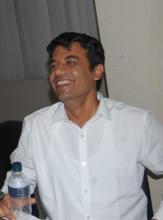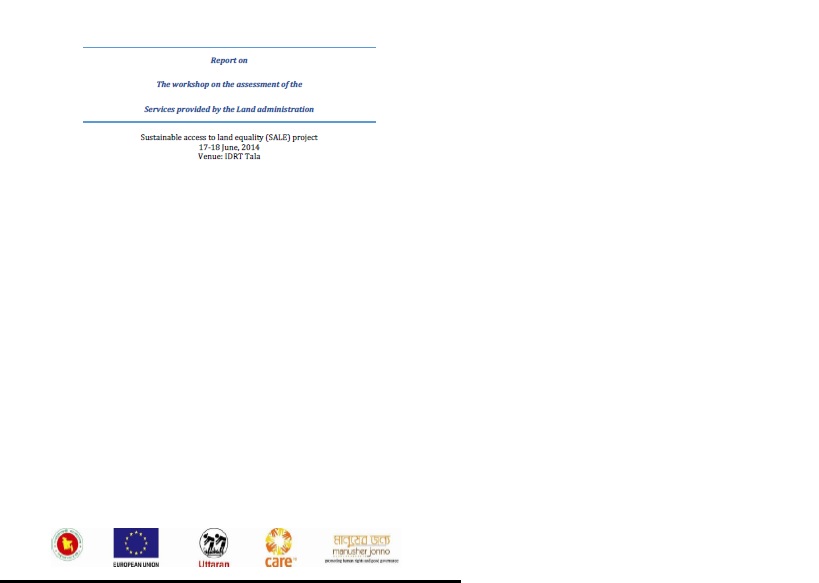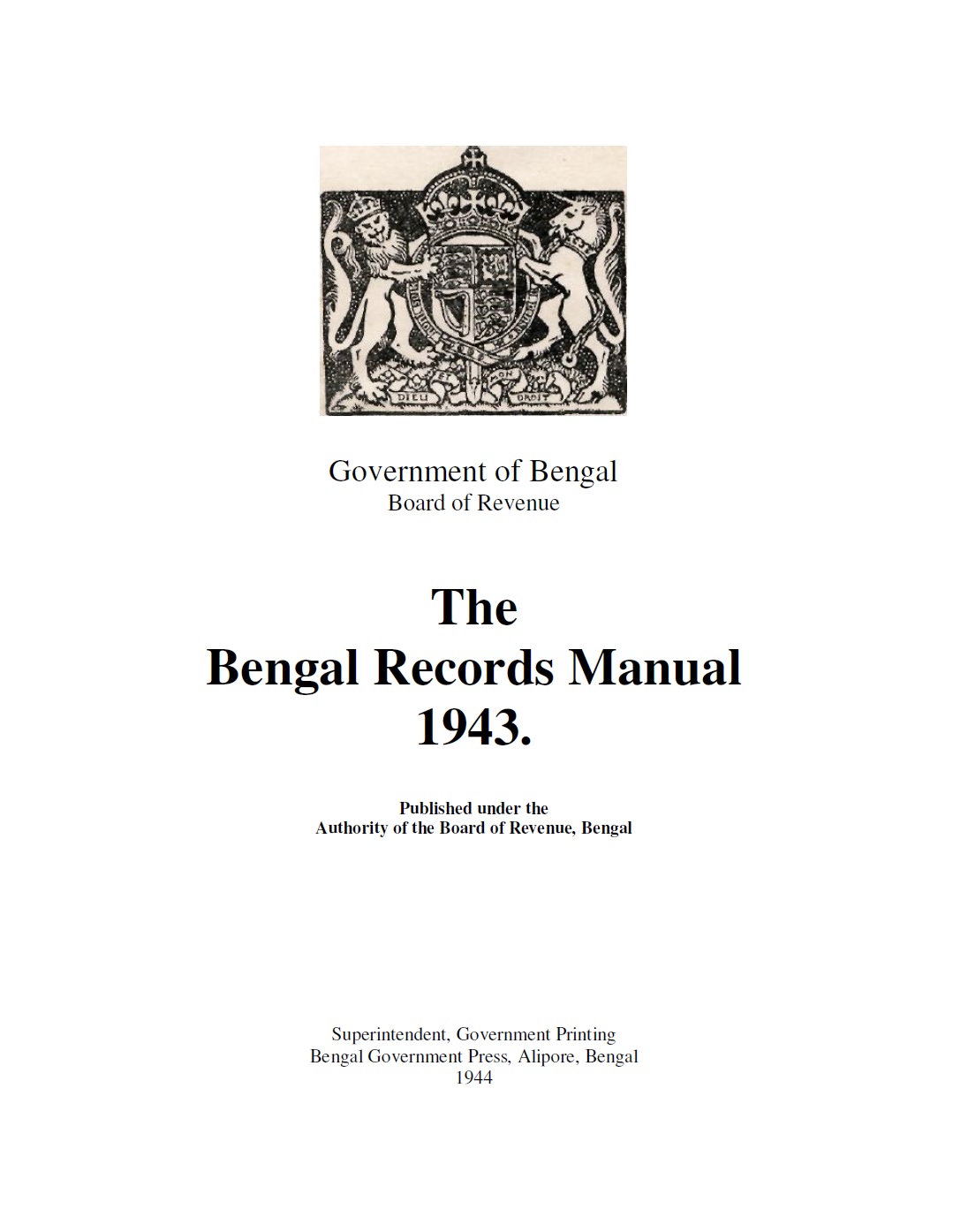
Topics and Regions
Mamun Ur Rashid has strong experiences on land administration and management in partnership with Ministry of Land and Department of Land Records and Survey, Bangladesh. He is knowledgeable and experienced with number of participatory tools and methods in order to selection of state land, women's access over the land and vested property act etc.
He has been working with non profit sector on human rights and governance for last 16 years, mostly project development and management roles. He has experiences of direct land project implementation in order to protect rights of women, widow, religious minorities, indigenous, elderly and disable land owners. He is one of the team member of National land policy formulation committee, National steering committee on land reform, National Budget Advocacy Group etc.
Details
Public Email
Location
Contributions
Displaying 31 - 40 of 63Training Report on Land Survey & Record Preparation
The Overall objectives of the project is strengthening access to land and property rights for all citizens especially the poorest part of the community in line with the overall Access-to-Land program being implemented by Ministry of Land through DLRS. This project is implemented in three districts under three upazilas of Bangladesh: Amtali upazila of Barguna, Jamalpur sadar upazila of Jamalpur and Mohonpur upazila of Rajshahi District. NIRAS a consulting firm of Denmark is responsible for providing technical support for GNSS machinery operation and ETS.
The workshop on the assessment of the Services provided by the Land administration
The assessment workshop organised in order to know about the strength and weakness of land administration from the experience of staff of different projects of UTTARAN. Secondly the workshop was organised to know the challenges faced by the landless people in accessing Khas (state) Lands (Legal, Social and Cultural) in Bangladesh in practices.
Report on the Workshop on the Sources of Khas Land, legal bindings for it’s distribution and Suggestions
Since 1985, Uttaran, an NGO, has been striving to establish the rights of poor people in the South-West regions of Bangladesh. During the operation of this development project, Uttaran has observed that providing the poor with productive elements can help eliminate poverty to a great extent. With the ownership of productive elements, their sources of income become multifarious. The productive element-the small piece of land-changes their social, cultural and psychological behavior. Statistics show that there are about 33lac acres of khas land in Bangladesh.
Training Report of the Open Street Map_Uttaran, Bangladesh
On 20th -21st July, 2014 Uttaran was organized a training of trainers (ToT) on Open Street Map for the volunteer group at Elenga Resort in Tangail by the technical support from the World Bank.
Report on Cambodia land registration process visit
Sustainable Access to land Equality (SALE) project planned and organized a study visit to Cambodia with Project Management Unit (PMU) and Project Technical Assistance team (PTAT) team members. Mr. Pasi Rajander’ of PTAT led the team as has already worked with same approach with digital survey record in Cambodia. As Bangladesh is implementing the same project so to learn the experiences, their learning, challenges and way of work that helps Cambodian authority to take forward the work successfully.
Foundation Training on ‘Facilitation’
Most participants i.e. Uttaran's field team faced the same challenge; powerful people in their working area (for example Union Parisad members/chairman) are not always willing to cooperate towards their project goals. It is important to work step by step when facilitating meetings. As a facilitator, one first needs to analyze the community to identify which people are influential and for which people the project is important. The training was delivered to increase capacity of Uttaran's field team members in order to improve their facilitation capacity.
Training Module on Khas (State) land Laws and Management
This training module is developed by Uttaran for its field level beneficiaries of Sustainable Access to Land Equalities (SALE) project. Initially some selected trainers are trained up on the basis of this module. Afterwards the selected trainer group will provide the training to the members of primary organization which is developed by Sustainable Access to Land Equalities (SALE) project of Uttaran. So those who facilitate this training workshop will have to have the sound knowledge about this training module.
Training Module on Leadership and Organization Management of women land owners
This training module is made for the field level beneficiaries of the project titled “Sustainable Access to Land Equality” implemented by Uttaran. Firstly, training will be provided to the selected trainers based on this module and later, the selected trainers will provide training to the primary committee leaders organized under the Sustainable Access to Land Equality project. So the person needs to have a clear conception about this module to conduct training.
Training Needs Assessment in Land Sector in Bangladesh
The main objectives for TNA were to identify prevailing perception and attitude among selective stakeholders who were responsible for providing services to target groups through distinguishing their needs in providing expected services. The specific objectives of this TNA were to identify the training needs of the GoB Land Officials (Upazila and union level), Union Parishad and Vhumi committees for delivery of service effectively and efficiently for the SALE project.
The Bengal Records Manual 1943.
Two separate compilations, “Training Material on West Bengal Financial Rules and Office Procedure” & “Training Material on West Bengal Service Rules” were published. These proved to be extremely useful and generated widespread demand for more copies. This document to put together rules, procedures, practices and executive orders laid down and released from time to time by the Government for running offices at the districts. It will be published shortly as another Monograph under the title, “Collectorate Manual”.










